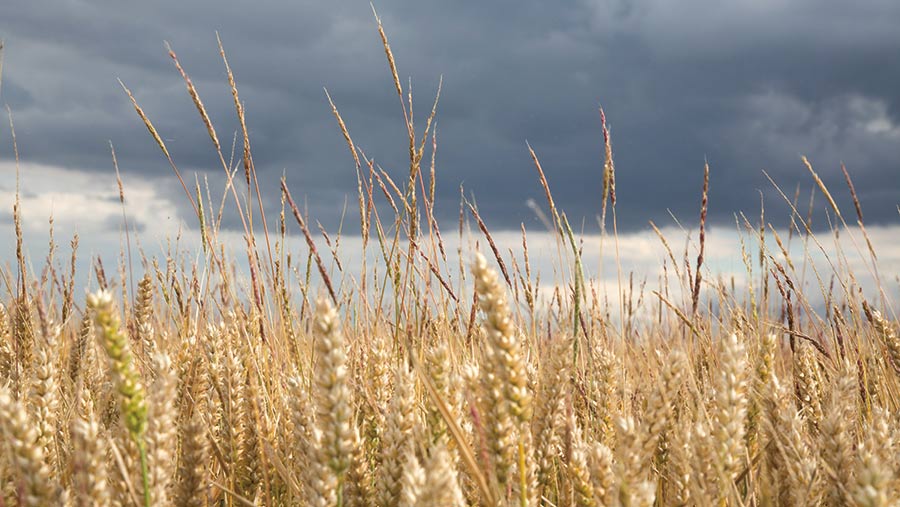Weeds pose ‘unprecedented threat’ to food security
 © Tim Scrivener
© Tim Scrivener Arable crops are now more vulnerable to weeds than before the advent of herbicides, according to a new study.
Herbicide resistance, fertiliser, crop height and climate change mean weeds pose an unprecedented threat to food security, according to scientists at Rothamsted Research in Hertfordshire.
See also: Farmers Weekly Know-How – Weed management advice
Data from the world’s longest-running experiment – the Rothamsted Broadbalk wheat trial – suggests less than one-third of the harvest was lost to weeds during the 1960s. But this had risen to more than half by 2005-2014.
Rothamsted Research scientist Jonathan Storkey said this was due to weeds doing better than crops in a warming climate, coupled with a shift towards shorter crop varieties that are shaded out by taller weeds.
Many weed species had also benefited from increased nitrogen fertiliser use, said Dr Storkey. In addition, the rise of herbicide-resistant weeds was threatening our ability to protect crop productivity gains achieved since the 1960s.
Increasing challenge
“Reducing yield losses from weeds is increasingly challenging because of the evolution of herbicide resistance, and we can no longer rely on herbicides alone to counter the increasing threat from weeds.”
Sustainable solutions to weed management were vital to protect the high yield potential of modern crop varieties, said Dr Storkey. Varieties with high fertiliser input requirements were also more vulnerable to higher yield losses from herbicide resistance.
It was increasingly important for plant breeders to develop varietal traits that reduce yield losses from weeds – as well as traits that optimise crop yield potential, said Dr Storkey.
“Our results highlight the need to diversify weed control strategies by complementing herbicides with non-chemical options – including increasing crop competition and disrupting weed life cycles using fallows or more diverse cropping rotations.”
Climate change
The final factor responsible for the increase in weed pressure was climate change. Between 1969 and 2014, average air temperatures measured at Rothamsted had risen consistently, said Dr Storkey.
Calculated over the main growing season for UK weeds, average temperatures have steadily increased and are now approximately 2C higher than they were in 1969.
As weed growth is boosted more by warming temperatures than crop growth, this has given the weeds a competitive advantage.
Dr Storkey said: “Management and climate change have combined over the past 45 years to increase the threat from weeds.
“If we could no longer rely on herbicides, it could be argued that, in terms of weed pressure, the situation is now worse than before their widespread introduction in the 1960s.”

